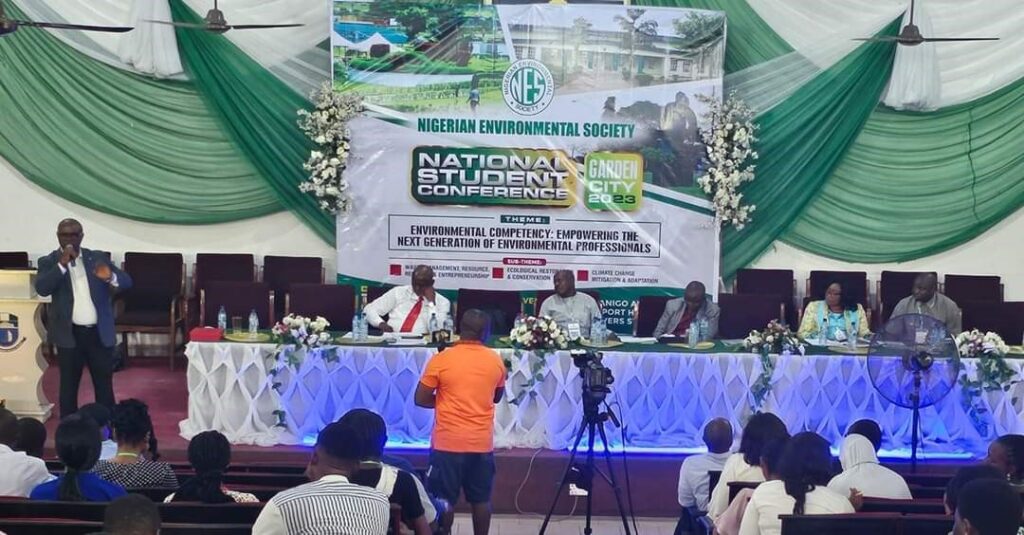
2nd National students conference of the Nigerian Environmental Society, First plenary sessions on waste Management, Resource and Recovery.
2nd National students conference of the Nigerian Environmental Society, First plenary sessions on waste Management, Resource and Recovery.
 A photo of the NES Coordinators on the high table.
A photo of the NES Coordinators on the high table.
Waste management resource and recovery is the process of managing and recovering waste materials in a sustainable and environmentally friendly manner. It involves the collection, transportation, treatment, and disposal of waste, with a focus on minimizing the negative impacts on the environment and maximizing resource recovery.
The 1st plenary sessions of the conference involves some Environmental experts in delivering Lectures regarding Waste Management resources and recovery. It also boosted the the knowledge of the students members who were present in the event.
 Photo of the participants receiving lectures at the plenary sessions.
Photo of the participants receiving lectures at the plenary sessions.
The goal of waste management resource and recovery is to reduce the amount of waste sent to landfills and incinerators by implementing strategies such as recycling, composting, and energy recovery. These methods help to conserve natural resources, reduce greenhouse gas emissions, and promote a circular economy.
Some common waste management resource and recovery practices include: Recycling, composting, Energy recovery, Hazardous waste management, Landfill diversions, waste to product initiative and so much more.
 Areal photo of the plenary sessions during the conference.
Areal photo of the plenary sessions during the conference.
Overall, waste management resource and recovery aim to minimize the environmental impact of waste generation and maximize the recovery of valuable resources. It requires a combination of technological advancements, policy support, and public participation to achieve sustainable waste management practices. The Nigerian Environmental Society has urged the students members to be good Ambassadors, pioneers and protectors of the Environment.
 Plenary sessions ongoing during the conference.
Plenary sessions ongoing during the conference.
In Conclusion, the NES charges all the participants to work on their various towns and cities to achieve the goal of managing the waste in their respective communities and furthermore goal of reduce the negative impact of waste on the environment and human health. It Is an important aspect of sustainable development and environmental protection.
